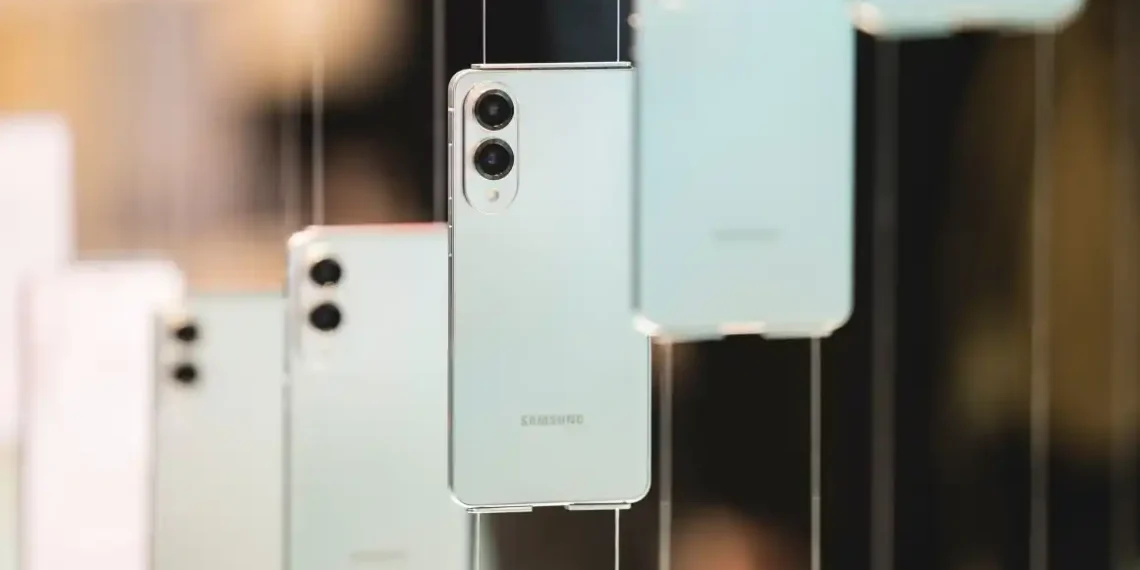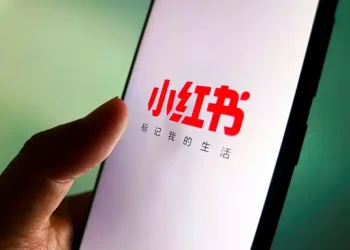The iPhone’s Biggest Rival: How Samsung’s Strategy May Give It an Edge in Trump’s Tariff War
As the U.S.-China trade war continues to escalate, one key difference between the iPhone and Samsung Galaxy may matter more than ever: the countries where these smartphones are assembled.
Unlike Apple, which remains heavily reliant on Chinese manufacturing, Samsung has diversified its production across several countries, including South Korea, Vietnam, India, and Brazil. This strategic shift could give Samsung an advantage as the U.S. ramps up tariffs on Chinese imports, particularly smartphones.
Apple’s production is still deeply tied to China, with estimates suggesting that around 90% of iPhones are assembled there, according to Wedbush Securities. While Apple has shifted some production to countries like India, the bulk of its phones still come from China. This dependency has made Apple vulnerable to the impact of the U.S.-China trade tensions and tariffs, which can drastically affect prices and profit margins.
In contrast, Samsung closed its last phone factory in China in 2019, after losing market share to local competitors. Today, the majority of Samsung smartphones are manufactured in Vietnam, India, South Korea, and Brazil—countries that aren’t directly targeted by Trump’s tariff policies. According to Counterpoint Research, about 90% of Samsung’s smartphone production takes place in Vietnam alone.
While Apple has received some relief from the tariffs targeting consumer tech devices, the looming threat of new tariffs on semiconductors—the essential components for electronics—could hit Apple harder than Samsung. The tech giant’s dependence on Chinese supply chains means it could face higher costs and potentially higher retail prices if tariffs increase.
Samsung, however, stands in a better position due to its diversified production footprint. With significant operations in countries like India and Vietnam, Samsung may avoid the worst of the tariff burdens. As Gerrit Schneemann, senior analyst at Counterpoint Research, puts it: “The advantage is, yes, they’re not facing the crazy numbers that Apple is dealing with.”
However, while Samsung may be insulated from some of the tariff effects, it doesn’t guarantee an immediate surge in sales. Analysts caution that Samsung’s market share might not increase overnight. “There’s not a direct line to turning that into just an exponential boost in sales,” Schneemann adds.
Apple’s pricing strategy is aimed at premium devices, with only a few high-end models in its lineup, ensuring it maintains higher margins. Samsung, on the other hand, offers a broader range of devices, including budget-friendly options through its Galaxy A series, which dominate the lower end of the market.
This difference in strategy means that while Apple may suffer more from price hikes due to tariffs, Samsung’s larger variety of phones might help it capture a wider array of consumers, particularly in price-sensitive markets. However, even with this advantage, analysts remain cautious about whether Samsung can pull customers away from the loyal Apple base.
Even with Samsung’s diversified production, the broader economic effects of the trade war and tariffs could hurt both companies. If consumer prices rise due to tariffs on imports from China, the economic strain may cause consumers to delay upgrading their devices. “Daily necessities and essentials are going to be higher on the list than maybe a new or upgraded smartphone,” Schneemann notes, particularly in mature markets like the U.S.
This shift could slow the growth of the smartphone market, especially in emerging economies, where demand for affordable smartphones has been rising steadily. Rising costs and a potential economic slowdown could lead consumers to hold onto their existing devices for longer periods, impacting overall smartphone sales.
While the tariff war may provide Samsung with a temporary advantage, the ongoing uncertainty in the global economy and tech supply chains makes the future unpredictable. As analysts from Wedbush Securities suggest, urgent negotiations with China are crucial to avoid further economic damage.
For now, Samsung’s global manufacturing footprint gives it a cushion against the most severe effects of tariffs. However, both companies will need to navigate a complex and volatile landscape if they hope to maintain growth and stay competitive in an increasingly unpredictable market.
This article was rewritten by JournosNews.com based on verified reporting from trusted sources. The content has been independently reviewed, fact-checked, and edited for accuracy, neutrality, tone, and global readability in accordance with Google News and AdSense standards.
All opinions, quotes, or statements from contributors, experts, or sourced organizations do not necessarily reflect the views of JournosNews.com. JournosNews.com maintains full editorial independence from any external funders, sponsors, or organizations.
Stay informed with JournosNews.com — your trusted source for verified global reporting and in-depth analysis. Follow us on Google News, BlueSky, and X for real-time updates.














